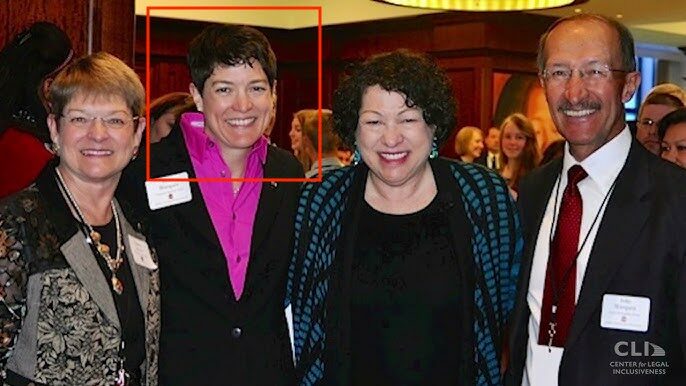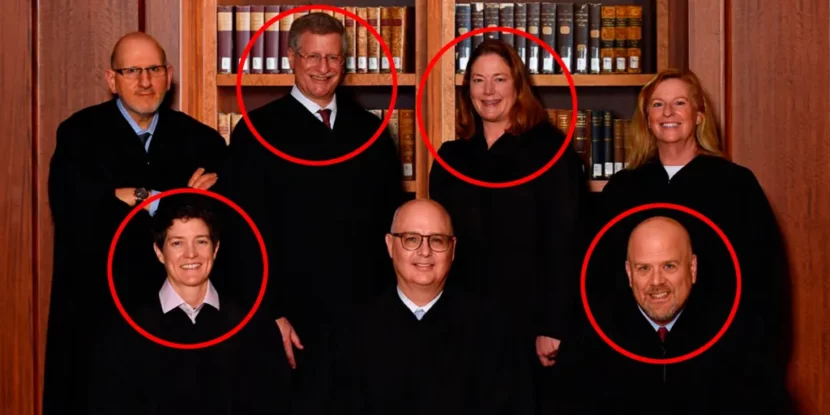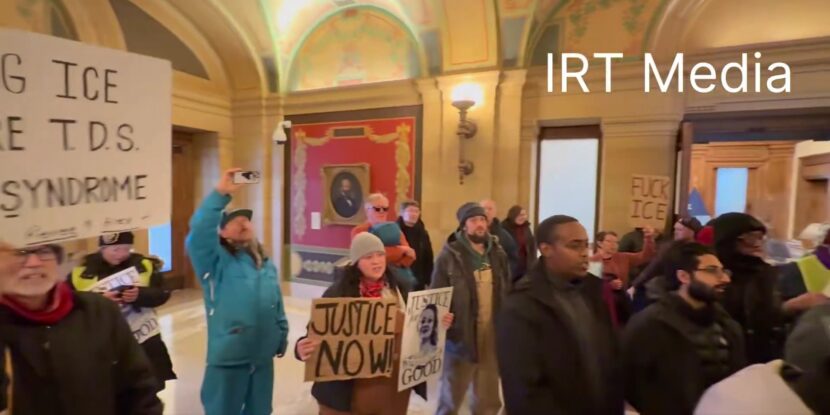Yesterday, four of Colorado’s seven state Supreme Court justices ruled to remove former President Donald Trump from the Rocky Mountain state’s 2024 ballot. Justices Monica Márquez, William W. Hood III, Richard L. Gabriel, and Melissa Hart all held the former President had instigated an insurrection against the United States and was therefore constitutionally disqualified from holding office under Section 3 of the 14th Amendment. The three other justices, including Chief Justice Brian Boatright, all dissented from the radical opinion.
In late 2020, the Colorado judicial system was rocked by accusations of sexual harassment against female court employees. State law, however, shields judges from public discipline – with detailed accusations rarely becoming public unless they are part of a public court hearing. We do know between 2010 and 2019, Colorado judges were disciplined 51 times for offenses ranging from failing to issue timely rulings to engaging in sexual relations with court employees. The Colorado Commission on Judicial Discipline hears, on average, 200 complains against judicial officials a year, with 90-percent being dismissed.
Justice Monica Márquez: The LGBT Latina.
Judge Monica Márquez – as well as her three colleagues who joined her in kicking Trump off the Colorado ballot – is a graduate of an elite American law school. She attained her undergraduate degree from Stanford University and her Juris Doctorate (JD) from Yale University’s law school.

Márquez’s appointment to the Colorado Supreme Court made her both the first woman of Hispanic-heritage and first gay person to serve on the state’s high court. A dyed-in-the-wool progressive, she was appointed by Democrat Governor Bill Ritter, Jr in 2010 – after spending much of her early career engaged in gay-and-lesbian issues in the state.
Prior to her appointment, Márquez served as president of the Colorado LGBT Bar Association and on the Denver mayor’s LGBT Commission. While she has been less politically active as a member of the state’s judiciary, in 2008 Márquez did make several small contributions to then-Illinois Senator Barack Obama’s ultimately victorious campaign for President of the United States.
Justice William W. Hood III: The Obama Connection.
Unlike his colleague, Justice Márquez, judge William W. Hood III wasn’t an active political donor prior to joining the bench in early 2014. Appointed by then-Governor John Hickenlooper – who now serves as the junior Democrat Senator for Colorado – Hood received his JD from the University of Virginia School of Law. When the Colorado Supreme Court accepted the resignation of Arapahoe County judge Natalie Chase, and censured her for exhibiting racial bias, Justice Hood noted the censure did not mean all of the judge’s rulings were invalid. “Only when a judge was actually biased will we question the reliability of the proceeding’s result,” Hood said at the time, upholding a prior Judge Chase ruling in a parental rights case.
Prior to becoming a judge, Hood worked at Isaacson Rosenbaum, a legal firm which served as counsel to the Democratic National Committee during the August 2008 convention at which Barack Obama was nominated as presidential candidate.
Justice Richard L. Gabriel: Accused of Sexual Harassment.
From Brooklyn New York, Gabriel is another Ivy League graduate, receiving his JD from the University of Pennsylvania Law School. Gabriel is described as “instrumental in representing” music industry corporates against digital file sharers in the early 2000s. After his 2015 appointment to the state supreme court by then-Gov. Hickenlooper, Justice Gabriel was accused of work-place sexual harassment. Between 2000 and 2007, Gabriel was a frequent donor to the Colorado Democrat Party, as well as Democrat candidates for office. After his appointment to the Colorado Court of Appeals by Democrat Gov. Bill Ritter in 2008, Gabriel’s political activity ceased.
Justice Melissa Hart: The Watergate Connection.
The final of the four justices to rule against Trump is Melissa Hart, the granddaughter of Democrat attorney and Watergate prosecutor Archibald Cox. Hart clerked for Clinton appointee Guido Calabresi, and both her and Gabriel were named in a 2018 Equal Employment Opportunity Commission complaint filed by Michele Brown – a black woman who was over the age of 60 at the time. Brown alleged she was passed over for employment with the court by a six-person hiring committee – including both Gabriel and Hart – in favor of a younger, less experienced white woman. The case brought by Brown was ultimately dismissed.
Like her colleagues, Hart is also a graduate of an elite law school, receiving her JD from Harvard University. She was appointed to the high court in 2017 by then-Gov. Hickenlooper. Prior to her appointment, Hart had made several contributions to Democrat candidates over the years, including Barack Obama and Hillary Clinton’s presidential campaigns.
The Dissenting Justices.
All three of the Colorado Supreme Court dissenters, Chief Justice Brian Boatright, Justice Maria E. Berkenkotter, and Justice Carlos Samour are graduates of the University of Denver School of Law. The divide between the justices when viewed through their education background suggests the four who ruled to remove Trump from the ballot were perhaps influenced by a more activist judicial tradition found in America’s elite, Ivy League institutions.
When asked on Wednesday if he believed former President Trump was an ‘insurrectionist’ and if he agreed with the Colorado decision, President Joe Biden said it is self-evident, adding “You saw it all. He continued: “Now whether the 14th Amendment applies, I’ll let the court make that decision. But he certainly supported an insurrection. There’s no question about it. None. Zero.”
The United States Supreme Court is likely to make a swift ruling in the Colorado ballot case – the state’s primary ballots are set to be certified on January 5th, 2024. If the Colorado Supreme Court’s decision does indeed go into effect, the Colorado Republican Party has said it will abandon the state-run primary and opt for a Party run caucus to select the GOP presidential nominee instead.
Raheem J. Kassam contributed to this report.




















